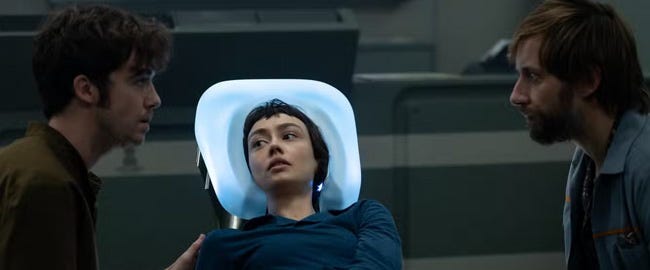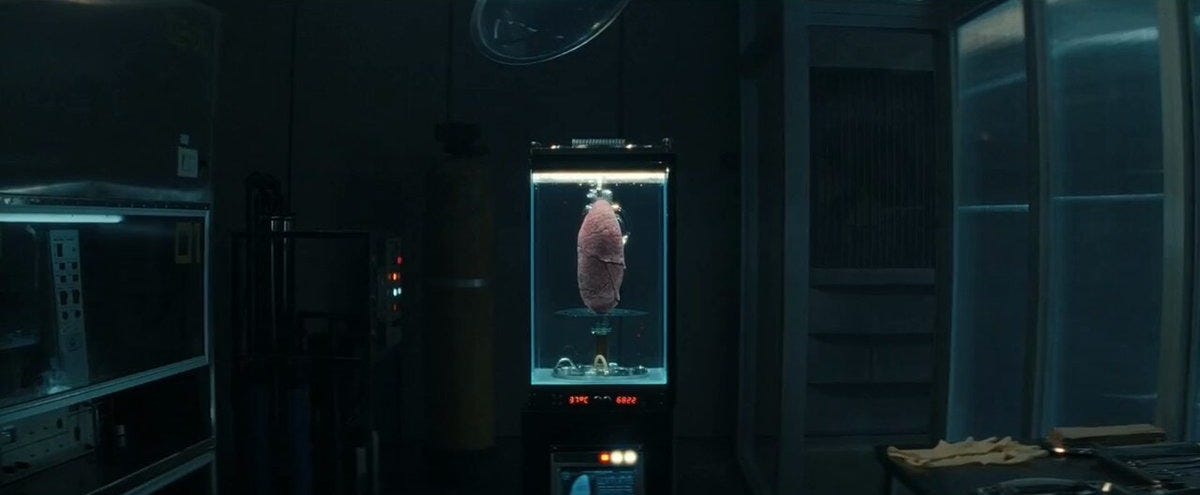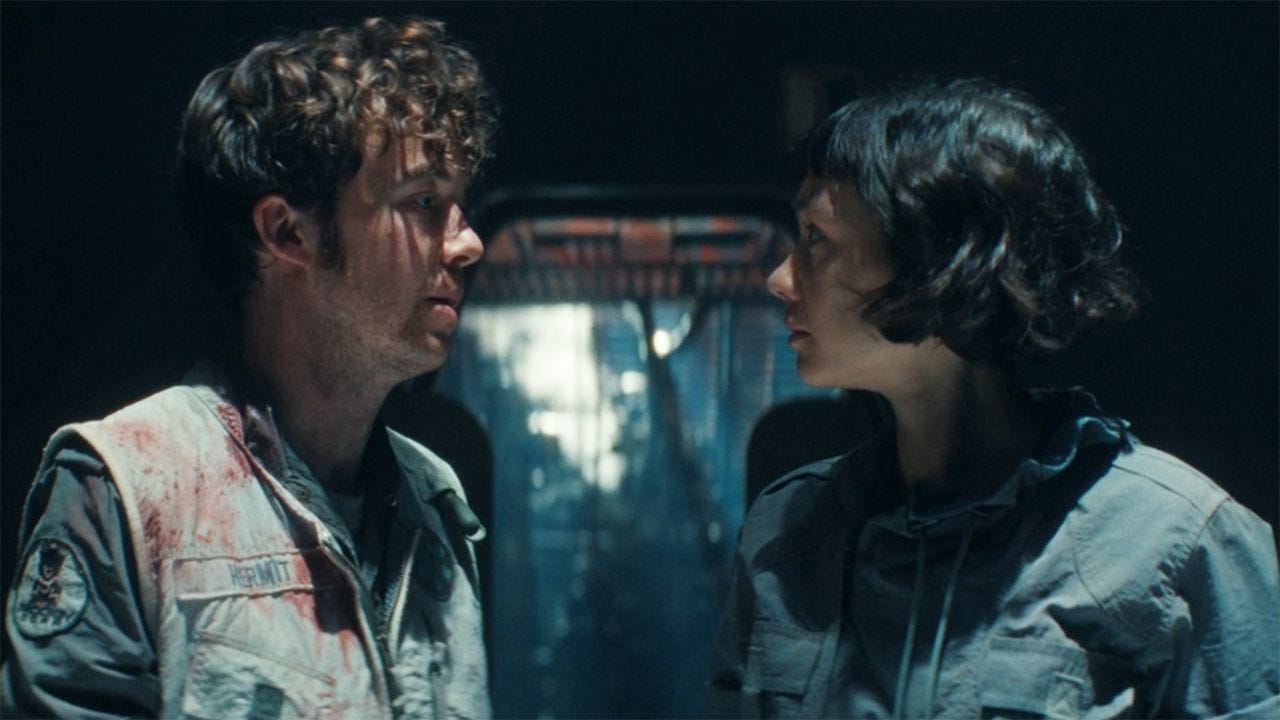Disability Themes in This Week’s Episode of Alien: Earth
In Episode 4, 'Observation', disability conversations naturally emerge alongside broader themes of corporate control and medical hubris.
I had planned to wait until season 1 of Alien: Earth finished airing to dive into the bigger disability-related themes in the show. After all, they literally put the souls, so to speak, of terminally ill children into synthetic adult bodies… there’s a lot to unpack. Not to mention that all of this unfolds within what might be the clearest example of an oligarchy in fiction. In the show, the planet is ruled by five corporations: Prodigy, Weyland-Yutani, Dynamic, Threshold, and Lynch.
Episode 4, Observation, however, left me with too many thoughts to hold off.
This post will zoom in on two moments that hit especially hard from a disability-rights perspective: one where Wendy, a synthetic adult-body housing the mind of an 11-year-old terminal cancer patient, is temporarily forcibly deafened, and another where Wendy’s non-synthetic brother, ‘Hermit’, is cybernetically enhanced without his consent and then trapped by the resulting medical debt, effectively forced into servitude. Neither moment feels as far removed from reality as the sci-fi details might suggest.
Early in the episode, Wendy’s hearing is forcibly ‘taken offline’ after she reports hearing a strange sound near the xenomorph embryos. The conversation around it is cold and clinical. She’s treated as an IT problem rather than a frightened child. No one asks for her consent, and her terror and discomfort are treated as data points, not human feelings.
It’s temporary, sure, but this scene rang familiar to me as someone who views most of the world through a disability lens… The dismissal of autonomy, the assumption that professionals know best, the way disabled people are often talked over instead of listened to. More than a work of fiction, this is the daily reality in hospitals, schools, and institutions.
There’s also a bigger conversation here about forcible disabling in the real world. Mass shootings, wars, and pandemics, to name a few, are events that create disability without consent and often without support. The show doesn’t go there explicitly, but Wendy’s terror reminded me of how little our systems value disabled lives when people are newly injured or impaired, even when it’s at the fault of those very same systems.
The other moment comes much later in the episode when Joe, or ‘Hermit’, wants to leave the island. The right-hand man to the CEO of Prodigy, one of the five oligarchic corporations ruling the planet, makes it clear that’s not an option. He reminds Hermit that after his injury, Prodigy ‘saved’ him by replacing his lung with a cybernetic one (without his consent of course), and now he owes them. As he puts it:
“Also, as your body keeps reminding you, you have a new lung. Whilst it comes courtesy of the Prodigy Corporation, it isn't free. You could work off the price here, assessing Wendy, redeploy and pay it off with a lifetime contract, or simply go home, and we'll bill you.”
If you’re thinking this sounds outlandishly dystopian, welcome to reality. In the U.S., medical debt is the leading cause of bankruptcy. Health insurance is tied to employment. The sick and disabled are punished for existing in bodies that need care. Hermit’s nonconsensual-lung-contract is just the futuristic sci-fi version of the system we already live in.
Both of these scenes left me unsettled because they don’t feel entirely fictional. Alien: Earth asks big questions about humanity, disability, and exploitation. These are questions that also need to be asked of the real-world systems that devalue disabled lives, whether through erasure of autonomy, medical coercion, or financial entrapment. I’ll have more to say about the broader disability themes across the season once it concludes, but episode 4 already lays bare multiple forms of control over disabled people: the forcible disabling of Wendy and the financial entrapment of Hermit.
Even in a show full of futuristic tech and alien encounters, these moments resonate because they mirror the ways society still marginalizes, endangers, and exploits disabled and chronically ill people. Frighteningly, it feels like a plausible glimpse of what this oppression could look like a century from now.
Did you notice these themes or other disability analogies in the episode or the season so far? I’d love to hear your thoughts, so I’m leaving this comments section open to everyone instead of exclusively paid subscribers!





